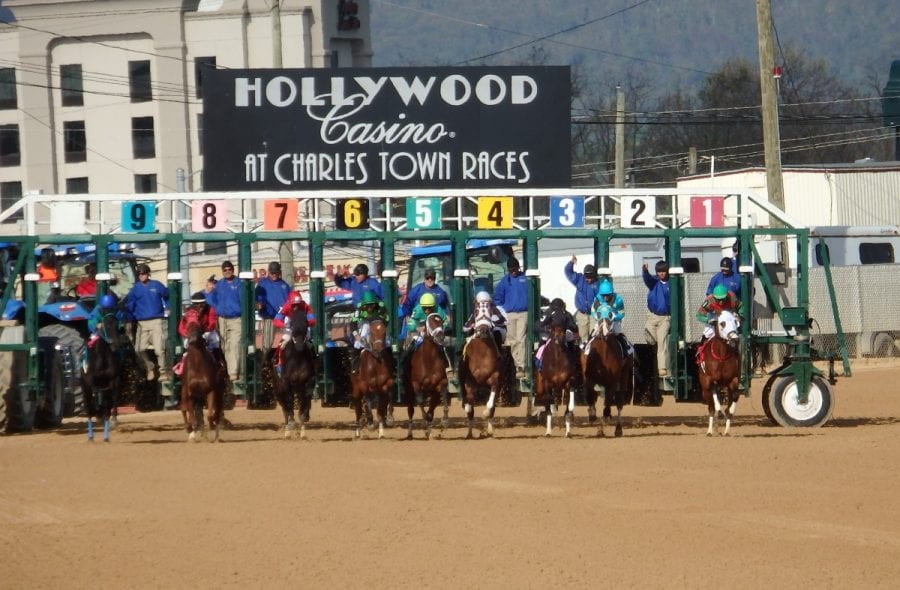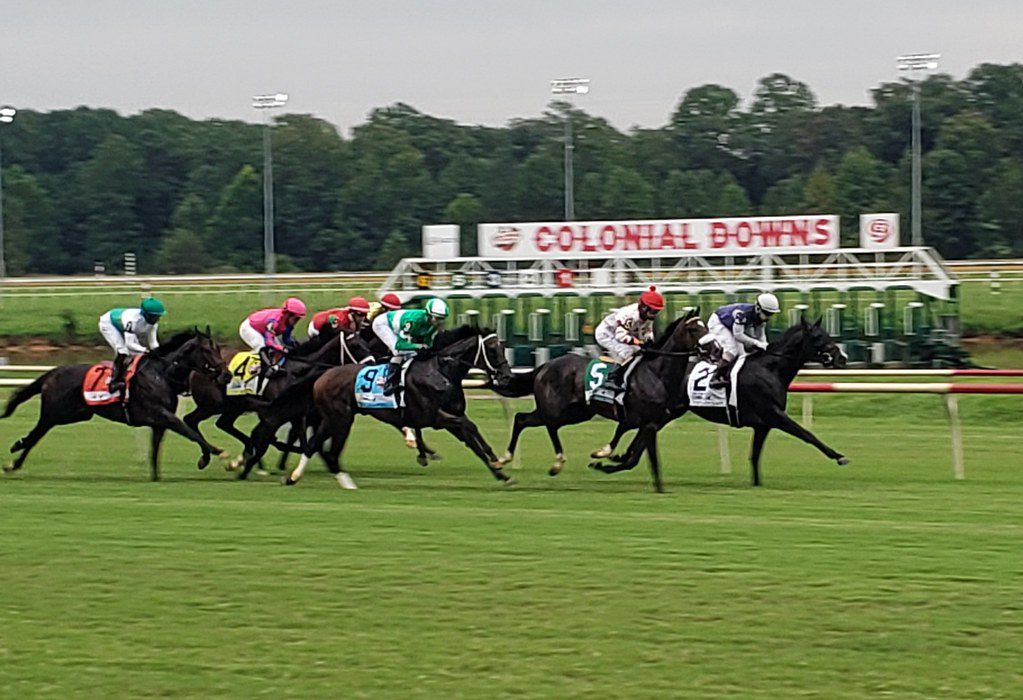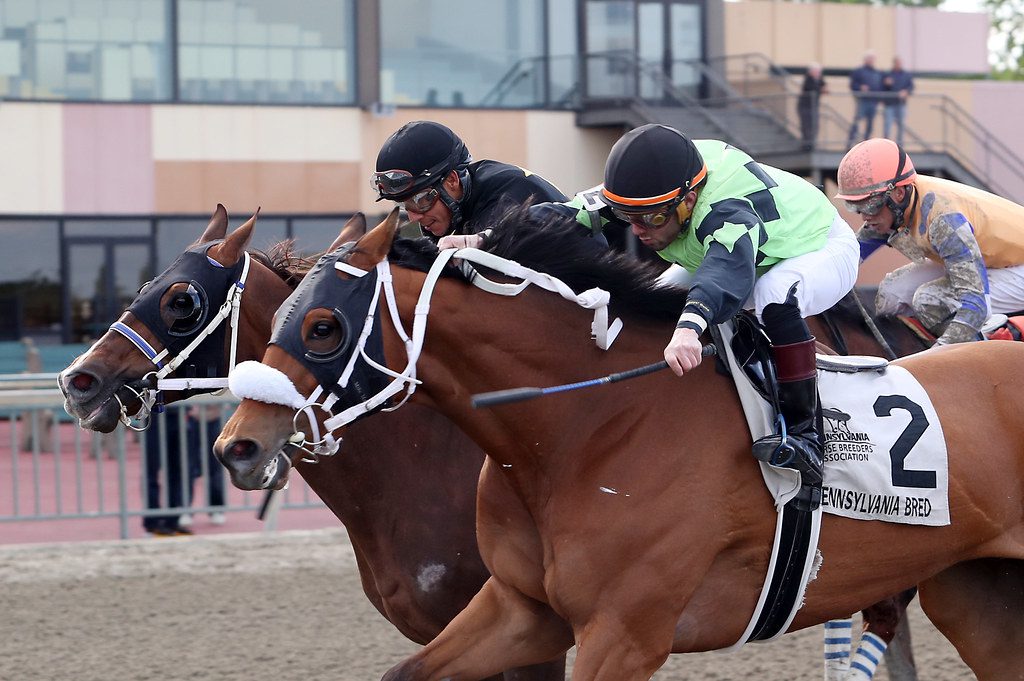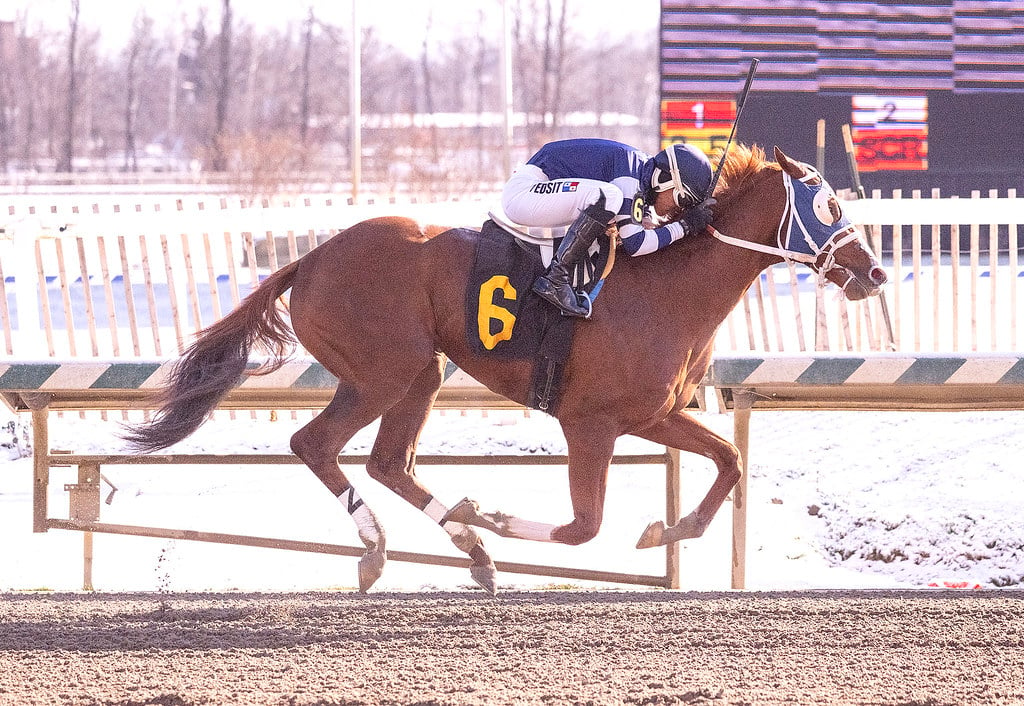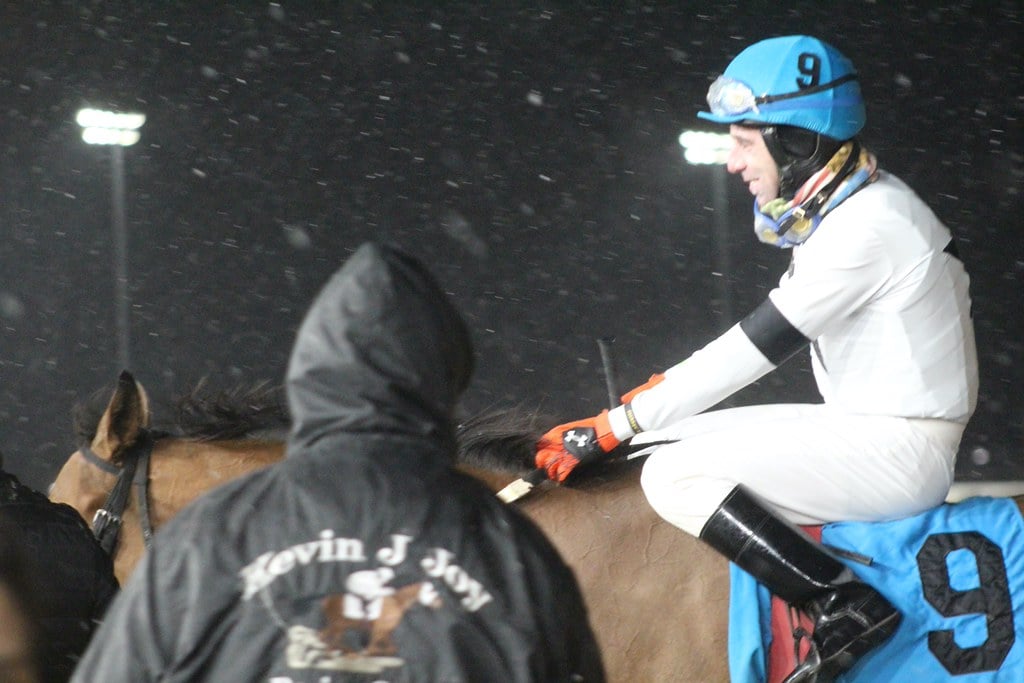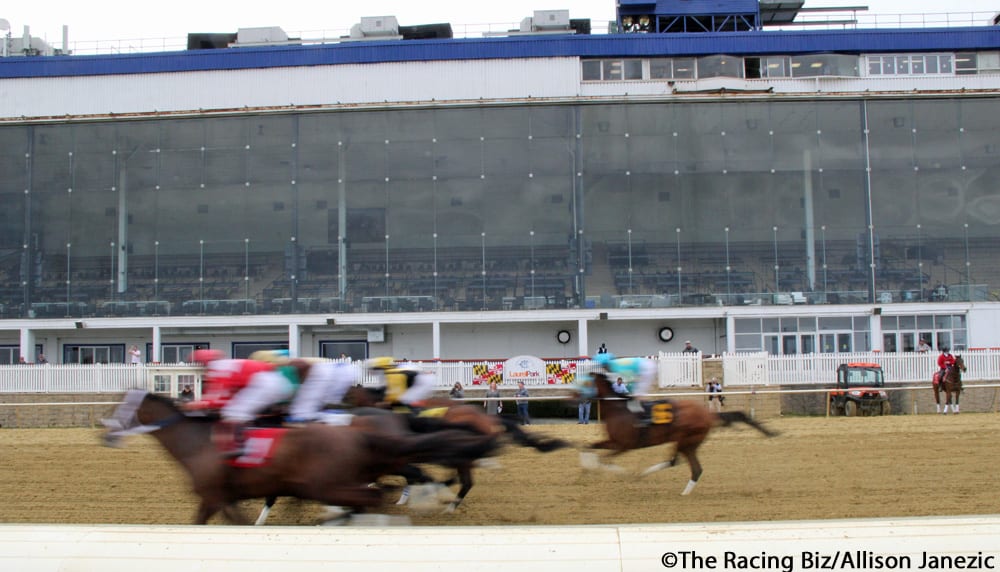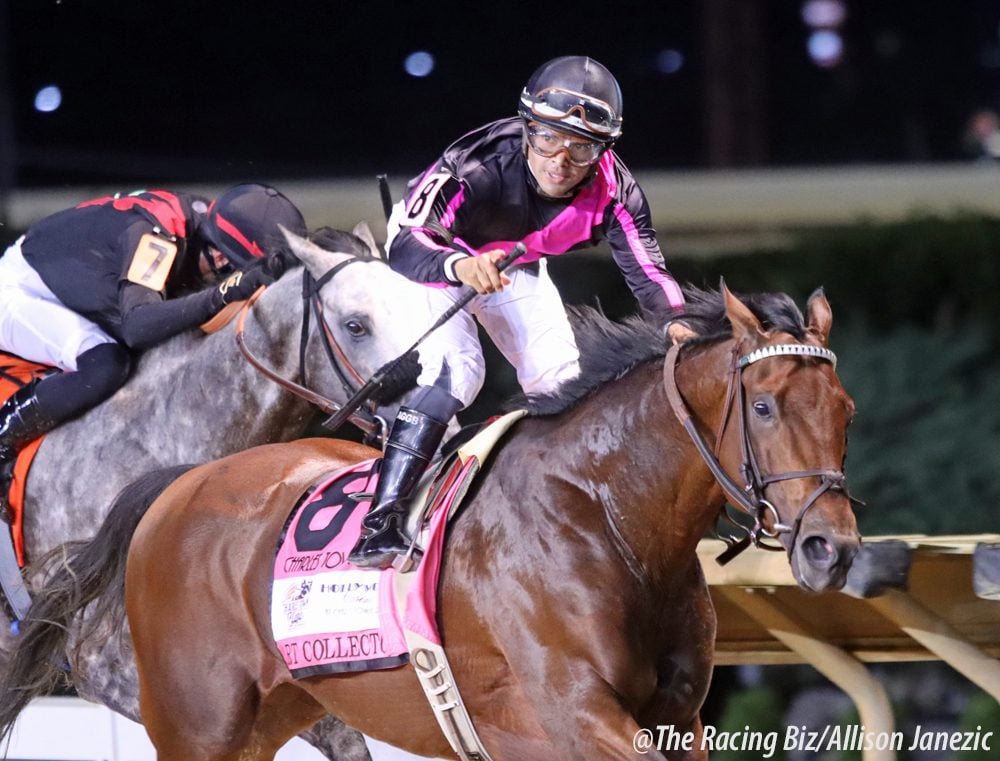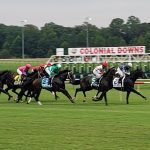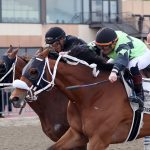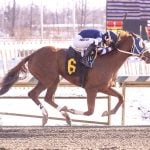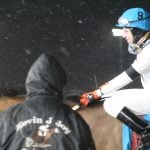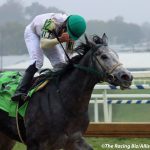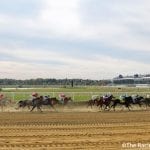MARYLAND RACING COMMISSION HEADLINES
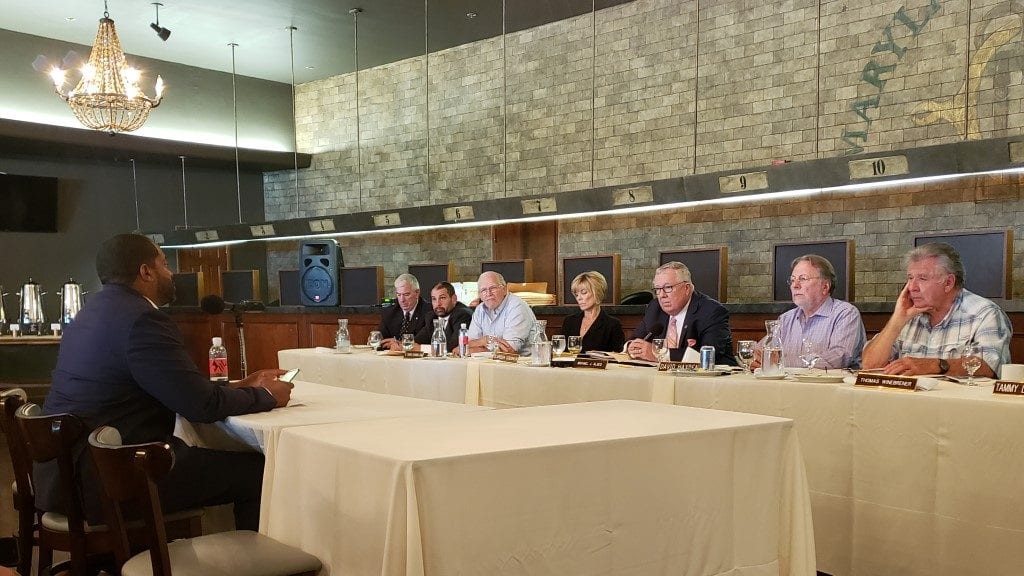
The Maryland Racing Commission held its first monthly meeting of the year Jan. 4, with two commissioners dragging themselves, despite the snow on the ground, to Laurel Park, while several others participated by phone.
Here are the headlines from the meeting:
Final action on corticosteroids
The Commission took final action to ban use of the corticosteroids dexamethasone, prednisolone, betamethasone, isoflupredone and triamcinolone. The new rules – adopted earlier on an emergency basis and given the final signoff on Tuesday – remove permissive thresholds for these medications. Instead, a positive will now be called at the “limit of detection,” meaning that any detected presence will trigger a positive.
Corticosteroids are considered a Class 4 drug. Violations of corticosteroid rules typically call for disqualification and loss of purse, with the trainer fined $1,000, absent mitigating circumstances, for a first offense.
First test for the new Laurel dirt surface
The first big test of the new Laurel Park dirt racing strip has arrived. The region received several inches of snow Monday, leading to the cancellation of training Monday, Tuesday, and Wednesday.
Mike Rogers, 1/ST Racing President of Racing and acting president of the Maryland Jockey Club, told the Commission that there have been “no catastrophic breakdowns” over the surface since its late November shutdown and subsequent mid-December reopening. The harsh winter weather that arrived suddenly – temperatures reached the 60s on Sunday but plummeted into the teens on Tuesday – will provide the surface’s sternest test yet.
- Charles Town: Latest jockey and trainer stats
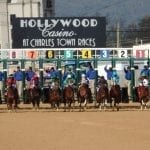 Which Charles Town jockeys and trainers are having a good meet? Who’s doing better than you’d think? Or heating up now? Answers within.
Which Charles Town jockeys and trainers are having a good meet? Who’s doing better than you’d think? Or heating up now? Answers within.
That said, Commissioner Tom Bowman, who chairs the Commission’s health and safety subcommittee, said that he was “terribly disappointed… in the apparent disagreement on which of the experts that has been brought in is actually the pilot of the ship.”
The Laurel track superintendent Chris Bosley is being advised by NYRA track super Glen Kozak, and the local horsemen’s group had also retained the services of former Maryland and NYRA track super John Passero, who did not participate in the meeting.
While Kozak generally consults by video, Passero had earlier been on the grounds on a regular basis. Bowman said “somebody has got to call balls and strikes” and that it seemed to him that would best be someone regularly on the grounds.
“There’s been a lot of frustration in that regard,” Bowman said.
But Rogers suggested that there was more widespread agreement than that.
“Just so everyone understands, we agree: all experts are on the same page,” he said, adding that the only area of disagreement had to do with “timing on one of the issues.”
- CT: Juvenile winners connect Sigler, Farrior barns
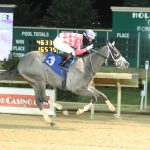 Maskedandmummed swept two November stakes at Charles Town, and a pair of other juveniles impressed in graduating in the muddled 2yo scene there.
Maskedandmummed swept two November stakes at Charles Town, and a pair of other juveniles impressed in graduating in the muddled 2yo scene there.
An interminable hearing
In an often contentious and seemingly interminable hearing that concluded the meeting, the Commission – represented by three Commissioners, the minimum required under state law – concluded that trainer John Robb’s actions had prevented owner Herman Braude from claiming a horse named Hydra in January 2020 but that there was no recourse under current rules. Thus, there will be no penalty; Braude said he had been seeking that Robb be fined.
The case arose when Robb told Braude, a longtime client, that he was intent on claiming Hydra for $25,000.
“Mr. Robb initially sought Mr. Braude’s interest in the horse and then didn’t hear from Mr. Braude for several days,” said assistant attorney general Catherine Bellinger, representing the stewards.
In the interim, Robb reached out to another of his owners, Gene Gould, Jr., who agreed to claim the horse. On the day of the race, Braude told Robb that he wanted the horse, but by that time, Robb had already committed to claiming the horse for Gould.
Claiming trainers often operate on a kind of “first yes” basis, in which the first of their owners who wants a horse and has sufficient money in the account to claim it gets the horse.
But Braude suggested he was the victim of a “conspiracy” by what he called “unscrupulous characters on the racetrack.”
The hearing dragged on for well more than three hours, although the basic facts were not in dispute. The Commission’s decision was unanimous.
The next Commission meeting is set for February 1 at Laurel Park.
LATEST NEWS


